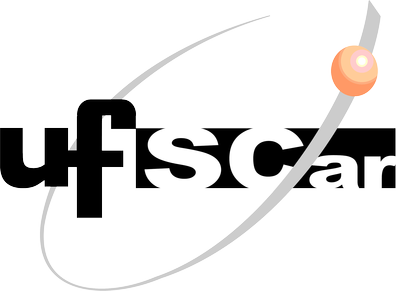27/08/2021 - Evaluating Treatment Tolerability in Cancer Clinical Trials Using the Toxicity Index - Speaker: André Rogatko (Cedars Sinai Medical Center - University of California, Los Angeles)
UFSCar/USP joint Seminar
Announcement file.
Scheduled for:
Aug 27, 2021, at 2:00 pm
(GMT-03:00) Brasilia Standard Time - Sao Paulo
Click here to watch again.
Speaker:
André Rogatko (Cedars Sinai Medical Center - University of California, Los Angeles)
Title:
Evaluating Treatment Tolerability in Cancer Clinical Trials Using the Toxicity Index
Abstract:
The seminar will present the results of two papers. First, we examine new strategies for understanding treatment toxicity applied to existing data from a large randomized clinical trial (NSABP-R04). Using new statistical approaches and graphical displays to summarize the toxicity data, we demonstrate how one can optimize the use of available information and provide a more complete and accurate account of which patients are at greatest risk for toxicity at the completion of a trial. We show that the Toxicity Index (TI) contains more information than other toxicity analysis methods by accounting for both the multiplicity and severity of toxicities, without losing the natural interpretability of the maximum grade approach. This added information provides greater power to examine comparisons across treatment types when compared to the maximum grade and average toxicity approaches, resulting in the least number of patients required to detect differences between treatments, and consequently saving trial resources and time (Gresham et al. 2020). Second, in Razaee et al., (2020), we construct a solid foundation on mathematical and statistical properties of the TI. We introduce the concept of a total ordering, referred to as the T-order, that allows for comparing adverse event (AE) data based on how frequently samples exhibit extreme grades. Since the T-order is a total order, it induces a full ranking among patient toxicity data, called the T-rank. This allows one to fully rank subjects (or treatments). The T-rank is relevant to drug tolerability trials where one wants to emphasize differences in extreme toxicity. The ranking also is useful in any application where variations in the extreme scores among subjects or treatments are of concern, and we are studying its application to the analysis of patient reported outcome measures. By evaluating the asymptotic relative efficiency of three summary measures, TI, maximum grade, and average grade, we showed that the TI is more efficient than the maximum and much more efficient than the average to compare patient treatment tolerability.
References:
Gresham G, Diniz MA, Razaee ZS, Luu M, Kim S, Hays RD, Piantadosi S, Tighiouart M, Yothers G, Ganz PA, Rogatko A. Evaluating Treatment Tolerability in Cancer Clinical Trials Using the Toxicity Index. JNCI: Journal of the National Cancer Institute. 2020. doi: 10.1093/jnci/djaa028. https://academic.oup.com/jnci/article/112/12/1266/5753952
Razaee ZS, Amini AA, Diniz MA, Tighiouart M, Yothers G, Rogatko A. On the Properties of the Toxicity Index and its Statistical Effciency. 2020. Statistics in Medicine 2021 Mar 15;40(6):1535-1552. doi: 10.1002/sim.8858. Epub 2020 Dec 20. PMID: 33345351; PMCID: PMC7953898. https://onlinelibrary.wiley.com/doi/pdf/10.1002/sim.8858
Bio:
André Rogatko is the founding director of the Biostatistics and Bioinformatics Research Center (BBRC) at the Samuel Oschin Comprehensive Cancer Institute (SOCCI), Cedars Sinai Medical Center (CSMC), Los Angeles, CA, and founder of the Biostatistics Shared Resource at CSMC in 10/1/2008. He is also Adjunct Professor at the Department of Medicine, David Geffen School of Medicine, UCLA, CA. He earned his doctorate degree in Genetics and Statistics, “summa cum laude,” from São Paulo University in Brazil in 1983. He has had had appointments at the Memorial Sloan-Kettering Cancer Center (1985-1990) and International Agency for Research on Cancer (World Health Organization, Lyon, 1990-1992). He joined the Fox Chase Cancer Center as Associate Member in 1992, was promoted to Member with tenure in 1995, and became Chairman of the Department of Biostatistics in 1999. Previous to joining Cedars Sinai, he was Associate Director of Biostatistics at the Winship Cancer Institute, Professor in the Department of Biostatistics at The Rollins School of Public Health, and Professor in the Department of Hematology and Oncology at School of Medicine, Emory University (2004-2008). He has published 133 peer-reviewed articles, 14 book chapters and 9 computer applications in biostatistics and genetic epidemiology. He has been developing Bayesian adaptive methods to improve the design and provide more efficient analytical tools in cancer clinical trials for over 20 years.

